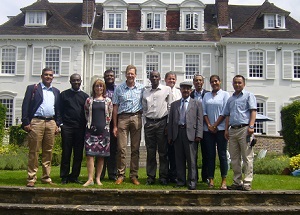Join a powerful, unprecedented alliance for better eye health for all.
Join IAPB-
Choose an alternate language here
To help support the delivery of ‘Universal Eye Health: a Global Action Plan 2014-2019‘, specifically the objective of generating more evidence to help advocate for increased political and financial commitment of Member States for eye health, IAPB is supporting a Rapid Assessment of Avoidable Blindness (RAAB) Training of Trainers (ToT) in the UK on 16-21 June 2014 through its VISION 2020 workshop programme (click here for the latest blog update on the programme).
This is to build up a new cadre of RAAB trainers to support the demand for RAABs by IAPB members, national governments, and others. These RAABs will help provide vital data to help in planning, advocacy and the development of targeted eye health programmes.
There have been recent RAAB ToTs for candidates from Latin America and the Western Pacific, so this ToT is specifically to meet the demand from the regions of Africa, South East Asia, Eastern Mediterranean and Europe. In Africa the members emphasized that the lack of available certified RAAB trainers is a bottleneck to getting RAABs done. To respond to this IAPB earmarked half the spaces for African candidates with Francophone candidates being a priority.
IAPB, with the technical expertise of current RAAB trainers have identified 11 candidates for the RAAB ToT which will be led by Dr. Hans Limburg. Six of these candidates come from Africa and we are very pleased that two are Francophone candidates. The full list of trainees is:

“It is exciting participating in this workshop with people from South Africa, Ghana, DR Congo, Nigeria, Ethiopia, Egypt, Yemen, Moldova, Nepal, Bhutan, and the UK. Each participant has variable prior experience with surveys, which enriches the discussions and makes the training particularly stimulating for the participants“, Dr. Bedri Kello, one of the trainee at the residential course, noted.
This training is the first step, the theoretical training, after which each candidate must then perform a RAAB independently under supervision before becoming fully certified. Already many of these candidates have lined up RAABs where they can be supervised and certified.